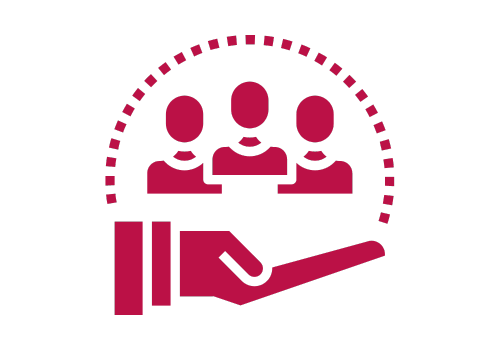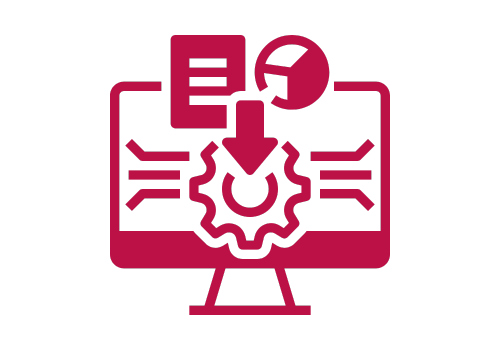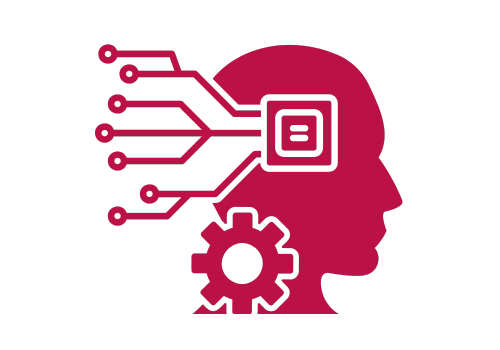Introduction to Computational Thinking
Unlock the Power of Problem Solving: Dive Deep into Computational Thinking!
Why This Training?
In a world filled with complex problems, Computational Thinking equips you with a universally applicable skill set to dissect challenges, identify patterns, focus on pivotal information, and design solutions. Whether you're in IT, business, healthcare, art, or any other field, this training offers an indispensable toolset for modern-day professionals.
Duration: 3 Hours (online / virtual live session)

Who Should Attend?
Professionals aiming to enhance their problem-solving skills.
Educators and trainers wanting to incorporate computational methods in teaching.
Educators and trainers wanting to incorporate computational methods in teaching.
See more
Managers and team leaders looking for ways to approach challenges methodically.
Anyone eager to harness the power of computational thinking, irrespective of their domain.
Anyone eager to harness the power of computational thinking, irrespective of their domain.

Course Highlights
Foundational Understanding: Discover what computational thinking is and why it's vital across disciplines.
Four Pillars Exploration: Dive deep into the core tenets - Decomposition, Pattern Recognition, Abstraction, and Algorithm Design.
Four Pillars Exploration: Dive deep into the core tenets - Decomposition, Pattern Recognition, Abstraction, and Algorithm Design.
See more
Hands-On Activities: Engage in practical tasks that nurture and challenge your computational thinking abilities.
Real-World Applications: Learn how computational thinking is being applied in diverse fields from technology to arts.
Interactive Group Discussions: Collaborate and discuss with peers, sharing insights and perspectives on overcoming challenges.
Real-World Applications: Learn how computational thinking is being applied in diverse fields from technology to arts.
Interactive Group Discussions: Collaborate and discuss with peers, sharing insights and perspectives on overcoming challenges.

Pre-requisites
An eagerness to learn and actively participate.
No prior knowledge of computational thinking or programming is required.
No prior knowledge of computational thinking or programming is required.
Training Materials Needed by Participants
A notebook or digital device for note-taking.
Reliable internet connection (for virtual sessions).
Materials for practical activities (will be provided or communicated before sessions).
Write your awesome label here.
Training Content
Introduction to Computational Thinking
Session 1: Introduction to Computational Thinking
Introduction & Icebreaker Activity
- Brief explanation of computational thinking and its relevance.
- Icebreaker: "Human Algorithm" – Step-by-step instruction activity.
What is Computational Thinking?
- Overview and significance.
- Emphasis on cross-disciplinary application.
Four Pillars of Computational Thinking: Overview
- Introduction to Decomposition, Pattern Recognition, Abstraction, and Algorithm Design.
Session 2: Deep Dive into the Pillars & Practical Activities
Practical Activity: Decomposition & Pattern Recognition
- Exercises on breaking down problems and identifying data trends.
Practical Activity: Abstraction & Algorithm Design
- Exercises focusing on distilling core information and step-by-step problem solving.
Discussion: Insights from the Activities
- Sharing observations and takeaways from the practical exercises.
Session 3: Real-World Applications & Future Insights
Real-World Applications of Computational Thinking
- Its use in various fields such as programming, business, biology, and art.
Group Activity: Overcoming Barriers to Computational Thinking
- Discussing challenges in applying computational thinking.
- Brainstorming solutions for a given challenge.
The Future of Computational Thinking & Open Discussion
- Discussion on future applications and importance.
- Q&A segment and wrap-up.
WOMEN AI ACADEMY
Women AI Academy is a gender-equality and technology driven learning & development organization
Site Terms & Info
ETHOS AI Training & Consulting GmbH
Weihenstephanerstr.1281673
Munich-Germany
We are driven by the vision of making AI both ethical and accessible to everyone
Copyright © 2024 Brought to you by Ethos ai AI Training & Consultancy GmbH
Ali Hessami is currently the Director of R&D and Innovation at Vega Systems, London, UK. He has an extensive track record in systems assurance and safety, security, sustainability, knowledge assessment/management methodologies. He has a background in the design and development of advanced control systems for business and safety-critical industrial applications.
Hessami represents the UK on the European Committee for Electrotechnical Standardization (CENELEC) & International Electrotechnical Commission (IEC) – safety systems, hardware & software standards committees. He was appointed by CENELEC as convener of several Working Groups for review of EN50128 Safety-Critical Software Standard and update and restructuring of the software, hardware, and system safety standards in CENELEC.
Ali is also a member of Cyber Security Standardisation SGA16, SG24, and WG26 Groups and started and chairs the IEEE Special Interest Group in Humanitarian Technologies and the Systems Council Chapters in the UK and Ireland Section. In 2017 Ali joined the IEEE Standards Association (SA), initially as a committee member for the new landmark IEEE 7000 standard focused on “Addressing Ethical Concerns in System Design.” He was subsequently appointed as the Technical Editor and later the Chair of P7000 working group. In November 2018, he was appointed as the VC and Process Architect of the IEEE’s global Ethics Certification Programme for Autonomous & Intelligent Systems (ECPAIS).
Trish advises and trains organisations internationally on Responsible AI (AI/data ethics, policy, governance), and Corporate Digital Responsibility.
Patricia has 20 years’ experience as a lawyer in data, technology and regulatory/government affairs and is a registered Solicitor in England and Wales, and the Republic of Ireland. She has authored and edited several works on law and regulation, policy, ethics, and AI.
She is an expert advisor on the Ethics Committee to the UK’s Digital Catapult Machine Intelligence Garage working with AI startups, is a Maestro (a title only given to 3 people in the world) and expert advisor “Maestro” on the IEEE’s CertifAIEd (previously known as ECPAIS) ethical certification panel, sits on IEEE’s P7003 (algorithmic bias)/P2247.4 (adaptive instructional systems)/P7010.1 (AI and ESG/UN SDGS) standards programmes, is a ForHumanity Fellow working on Independent Audit of AI Systems, is Chair of the Society for Computers and Law, and is a non-exec director on the Board of iTechlaw and on the Board of Women Leading in AI. Until 2021, Patricia was on the RSA’s online harms advisory panel, whose work contributed to the UK’s Online Safety Bill.
Trish is also a linguist and speaks fluently English, French, and German.
In 2021, Patricia was listed on the 100 Brilliant Women in AI Ethics™ and named on Computer Weekly’s longlist as one of the Most Influential Women in UK Technology in 2021.

